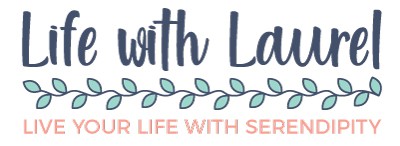Have You Ever Had To Eat Crow?| How To Admit You Are Wrong
Have you ever said something that later you had to take back and admit you were wrong and you wonder how to admit you are wrong? That happened to me recently and I had to eat crow.
As my adult kids live all over the United States, we have a group chat that keeps us connected. A couple of months ago, one of my kids was expressing how she was preparing for this new Coronavirus. She had a list of essential pantry items to be sure they would be prepared for a month’s time.
I, of course, replied that I felt it was only a new strain of flu. If everyone would follow proper hygiene and wash their hands regularly it wouldn’t be anything to be too concerned about.
I then got very irritated with my sweetheart for having me drop everything I was doing to go to the store to stock up on essentials and enough shelf-stable and freezer items as possible. He was on his way home with a freezer!
I know what you’re thinking. Yep! They were right and I had to Eat Crow!
Have you ever noticed that when we have to admit we are wrong the English language usually involves us eating something? Think about the phrases- Eat Crow, Eat Humble Pie, Swallow Our Pride, or Eat Our Own Words. Hmmmm- just something to ponder.
Nobody likes to be wrong, but sometimes we are. When we are wrong the best thing to do is admit it.
Why You Should Admit To Being Wrong
Now there’s nothing wrong with having pride. After all, it demonstrates that you have confidence in yourself and can often propel you forward. However, there is a narrow line between confidence and having a stubborn ego.
People will respect those who are credible and can admit their mistakes. You will be held in high regard and trustworthy. The bottom line is to admit when you are wrong is also good for your own personal growth.
Why Admitting You Are Wrong Is So Difficult
There are many reasons that people struggle to admitting when they are wrong.
Some people simply have a lack of self-awareness. If someone isn’t aware that they’re in the wrong then it’s impossible for then to admit that they are.
Others have a difficult time admitting they are wrong due to their ego. They may worry that showing imperfection will indicate a character flaw. They may be embarrassed, feel shame or guilt.
Some may feel that showing their imperfection will be perceived as them being weak, unlikeable, or even a bad person. They fear they will lose the respect of their friends, family, or peers.
But the contrary is true. To eat that crow, one gains the respect of others as they can work through a situation.
Effects Of Not being Able To Apologize
While it can be scary to apologize and admit our wrongdoing, denying it frustrates our peers, colleagues, family members, and partners. Not admitting when you are wrong weakens you as a leader in business or at home as no one likes that person who always thinks they are right even when clearly they are not!
By not admitting when we are at fault, we don’t allow ourselves to be vulnerable. By not letting our walls down, we hold onto feelings of shame, guilt, or even fear. This causes people to grow distant and we end up alone without the buy-in from our team members, friends, family, or even spouse.
Benefits of Coming Clean and Eating That Crow
Conversely, admitting we are wrong shows others that we are empathetic and good listeners. It also shows that we are capable of being objective about ourselves.
By admitting when one is wrong, one shows others that we value truth. This then gains their respect and others will trust you as well. It also makes you approachable since others feel they can admit their mistakes to you.
Being vulnerable to being wrong and admitting our flaws will open doors to meaningful conversations and solutions to disagreements.
7 Steps to Admit You Are Wrong And How To Apologize
Admitting we are wrong can be scary at first, but with practice, we can get better at eating crow and gain the respect of others. Take a deep breath and follow these steps on how to admit we are wrong and apologize.
1. Admission
The first step is to admit the truth to yourself. Have the self-awareness that we can be wrong and realize that we are all human and we all make mistakes.
If you can’t admit it to yourself, then your apology will come across as insincere. Take ownership and responsibility for your mistake. You will be okay after coming clean with your error and might even gain more respect for your admission.
2. Look Inwards
Get some introspective by reflecting on yourself and why it may be difficult to admit and apologize. Ask yourself questions about the situation and reflect.
- Ask Yourself why your are afraid to be vulnerable.
- What is the worst thing that can happen if I admit my mistake?
- What is the best thing that can happen?
Chances are, there is more good than bad that will happen if you admit an apologize.
3. Listen To Other’s Perspective
Listen and don’t argue to the other person’s perspective. This will require active listening and allows you to see things from the other’s perspective. By listening carefully to others, it demonstrates your openness, flexibility, and emotional intelligence even if you don’t agree. Marinate in other’s thought processes in order to see that their vantage point has validity. There is strength in admitting when we are wrong and can come to common ground.
4. Be Simple and Precise
Saying the two words “I’m sorry” can be very difficult for most. It is best to be simple and precise with the delivery of those two words without over apologizing.
The most simple way to admit you are wrong is to say, “I was wrong, and I’m sorry.” This is simple and to the point without backing it up with but….
The most valuable part of eating crow is to acknowledge what happened and understanding why it happened without beating a dead horse.
5. Come to A Conclusion
Talk about understanding the other’s perspective and what you will do differently. This shows that you respect others and put thought into why you were wrong.
6. Practice, Practice, Practice
The only way to feel confident with admitting when you are wrong and apologizing is to practice. Put these tips to good use and start to listen to others and admit when you are wrong.
It does get easier with time, especially when you realize the benefits it offers.
7. Ask A Therapist For Help
If you are still struggling with this, you may need a therapist to offer more assistance. Seek out a therapist that can guide you through this process and offers role playing so that you are more comfortable.

Lastly
This post contains affiliate links, which means I receive a small commission, at no extra cost to you, if you make a purchase using this link. Please see my disclosure for more details.
For those that want to brush up a little more, an excellent read is the book called The Art of an Apology: How, When, and Why To Give And Accept Apologies by Lauren M. Bloom
In Art of the Apology, author Lauren M. Bloom identifies the six essential elements of any effective apology—and the thirteen most common ways to botch it. A well-thought-out, honest apology can heal your relationship, save your job, and offer you an opportunity for personal or professional growth. Life is too precious to be burdened by grudges. Let Lauren M. Bloom help you clear your conscience, learn from your mistakes, and build a more forgiving world—one apology at a time.

You can choose to admit the mistake and take whatever the consequences may be or stand by your mistake and hope that no one notices. Chances are it will be noticed and if you take ownership of your mistake and Eat Crow, you will be better respected.
What is easy, isn’t always what is right.
If you enjoyed this post you may also enjoy:


